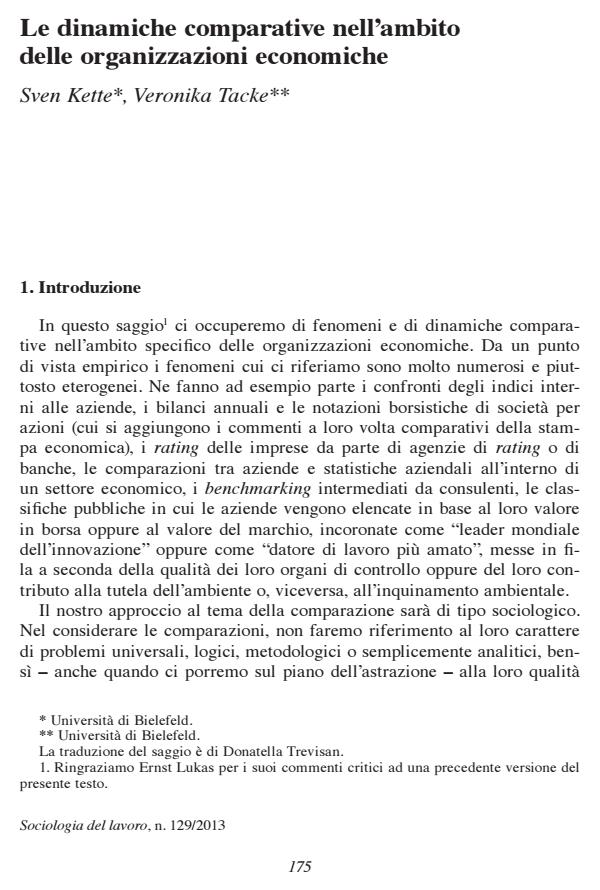The comparative dynamics in economic organizations
Journal title SOCIOLOGIA DEL LAVORO
Author/s Sven Kette
Publishing Year 2013 Issue 2013/129
Language Italian Pages 19 P. 175-193 File size 266 KB
DOI 10.3280/SL2013-129011
DOI is like a bar code for intellectual property: to have more infomation
click here
Below, you can see the article first page
If you want to buy this article in PDF format, you can do it, following the instructions to buy download credits

FrancoAngeli is member of Publishers International Linking Association, Inc (PILA), a not-for-profit association which run the CrossRef service enabling links to and from online scholarly content.
The essay focuses on the relevance of comparison methods in public communication in contemporary society. The paper explores the basic features of the comparative techniques and then focuses on the dynamic nature of the comparison. In different social contexts (society, economy, organizations) the comparison methods develop different types of dynamics whose effects are manifested in processes of institutionalization. Economic organizations use the techniques of comparison as a means of control and as public communication devices of their action.
Keywords: Comparison, public communication, dynamics, economic organizations, institutional building
- Vergleich und Leistung in der funktional differenzierten Gesellschaft Sven Kette, Veronika Tacke, pp.131 (ISBN:978-3-658-17915-1)
Sven Kette, Le dinamiche comparative nell’ambito delle organizzazioni economiche in "SOCIOLOGIA DEL LAVORO " 129/2013, pp 175-193, DOI: 10.3280/SL2013-129011